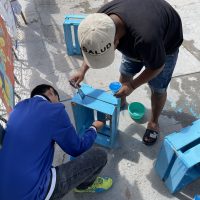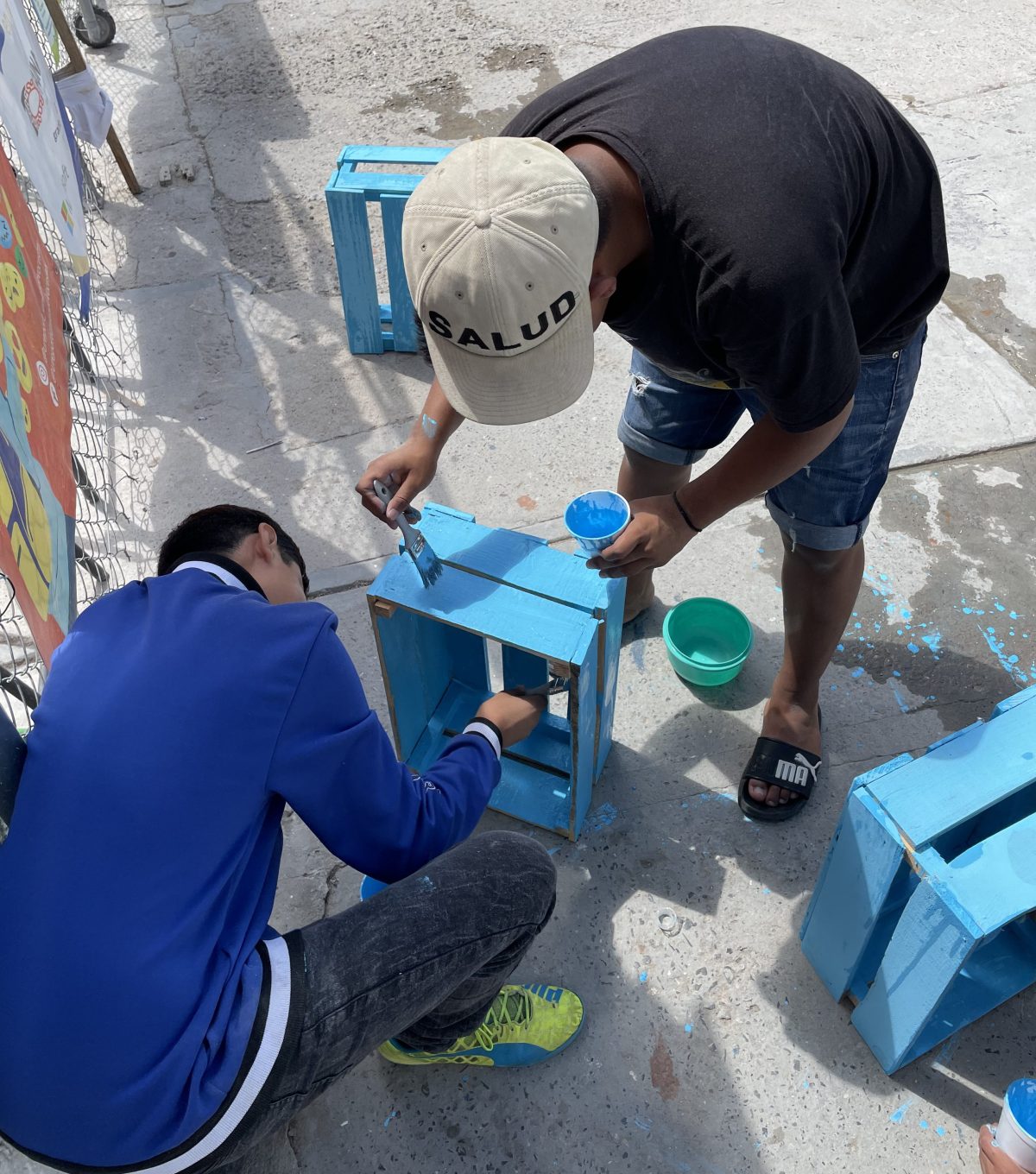Throughout the last thirteen years, we’ve stayed true to the heart of our work. Working relationally with those we serve and our partners, we activate bold ideas to make people’s lives better.
One of Miguel’s* favorite aspects of working with migrants near the US Mexico border is finding creative solutions to support them. As a member of our community of peacebuilders, he has distributed food, handed out hygiene kits, and assisted with running English language workshops on our tech bus. When a high school friend contacted him about donating some wooden crates his employees had made, Miguel had a bold idea. Why not hold a woodworking workshop for migrants in one of our partner shelters?
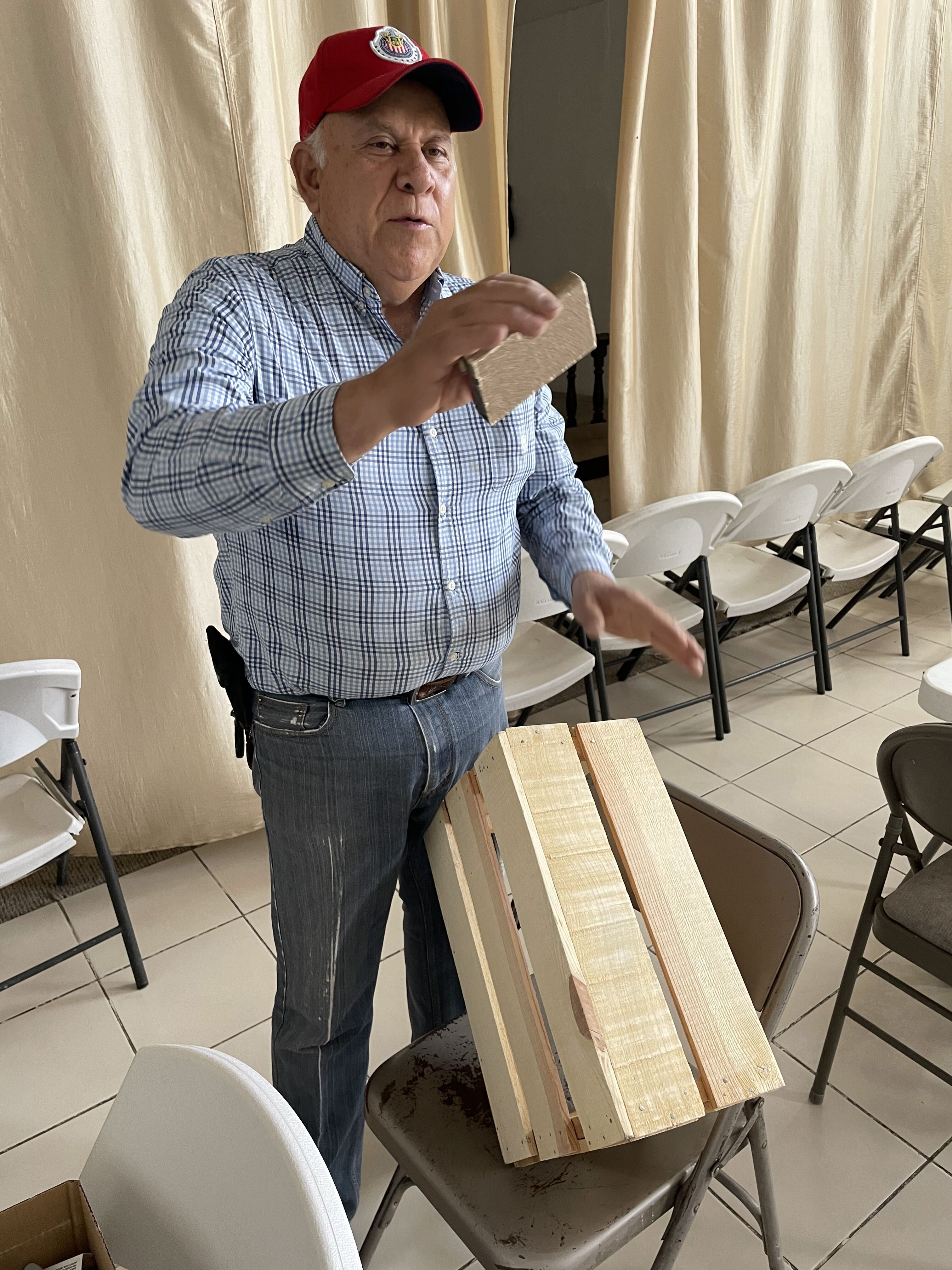
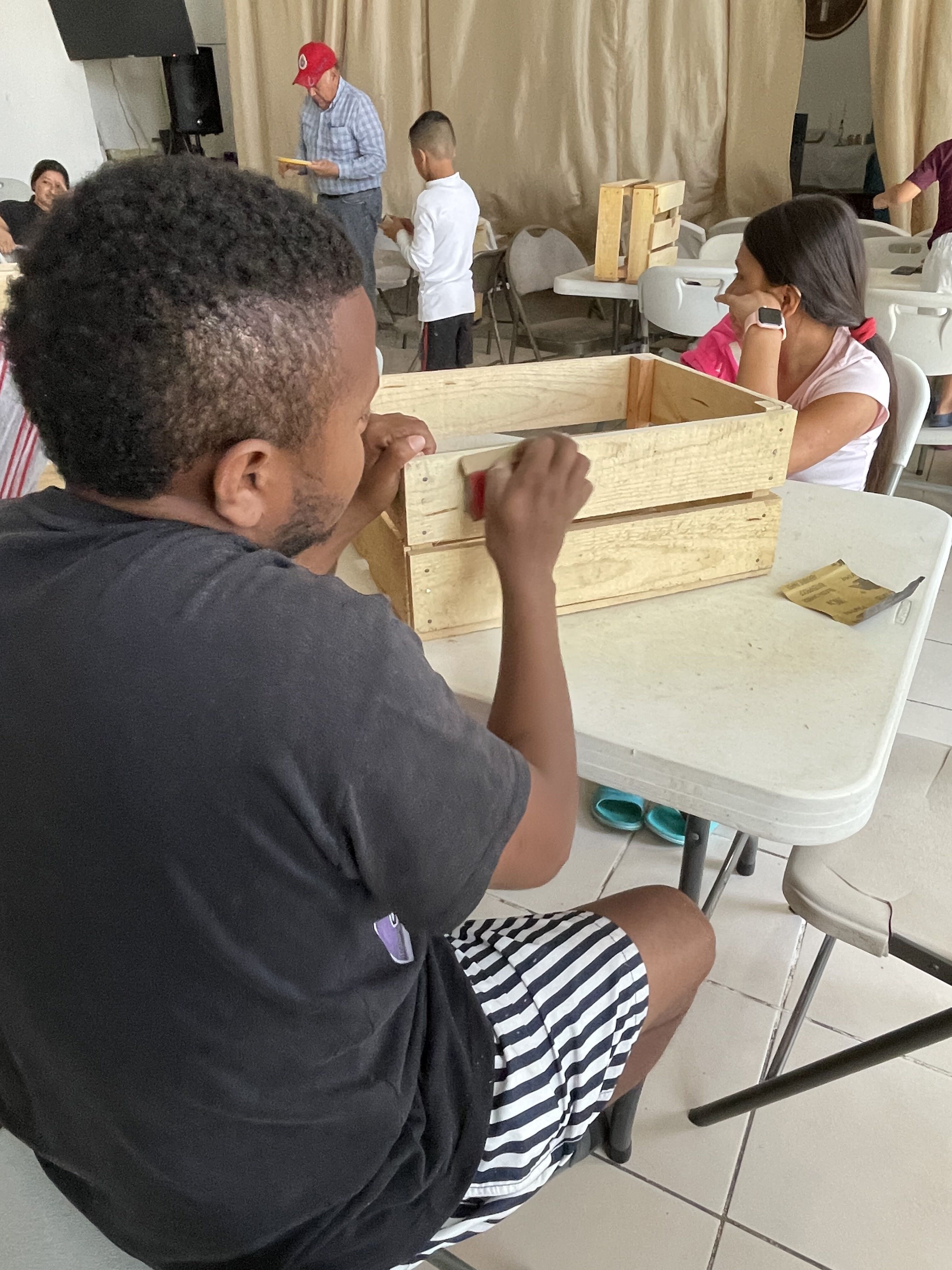
Sanding well requires good tools, a rhythmic technique, guidance, and practice. The strength of relationships brought Miguel the wood for the workshop. Relationships also delivered a teacher. Miguel’s father is retired, with experience in carpentry and a deeply ingrained desire to support others. When Miguel asked his father to conduct the workshop, he said, “Claro mijo con mucho gusto,” or “Of course, my son, I would love to do that.” Our community of donors provided sandpaper, sanding blocks, paint, and paintbrushes.
Thirty participants, mostly women and children, came together, united by a common desire to temporarily escape the complex realities of their migration journeys. The wooden crates became canvases for their creative expressions. Each stroke of sandpaper and brush of paint served as a therapeutic escape, helping participants clear their minds and restore a sense of usefulness. As the hours passed, the participants transformed these once plain and unremarkable crates into creative works decorated with unity symbols and symbolizing their resilience.
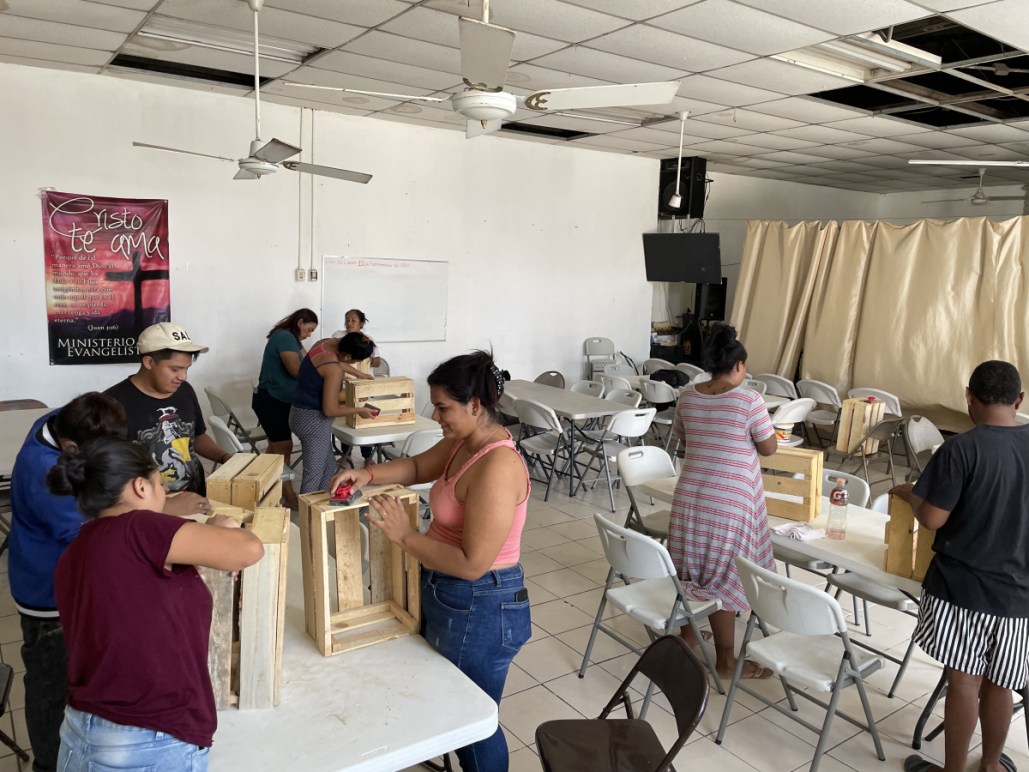
Laughter and stories filled the workshop. Because woodworking is dynamic and interactive, the workshop participants engaged their minds in a new way. Working with their hands, they made something practical and aesthetically pleasing to be donated back to the shelter. Not only did participating in the workshop alleviate the boredom migrants experience as they wait for their asylum claims to be processed, but being able to give back to the shelter restored their sense of agency and belonging. Each box became a testament to a migrant’s willingness to succeed and their unwavering spirit in the face of adversity.
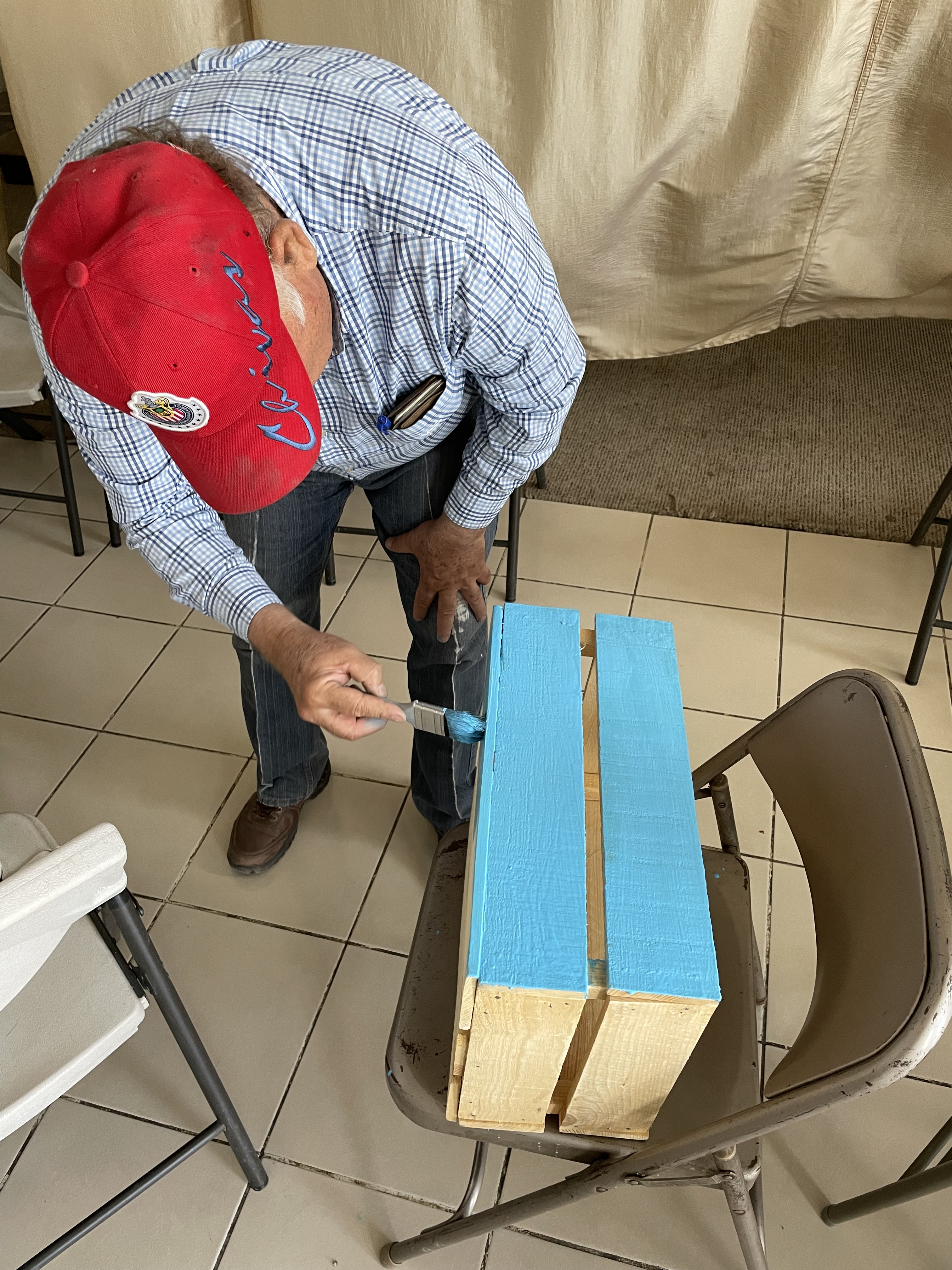
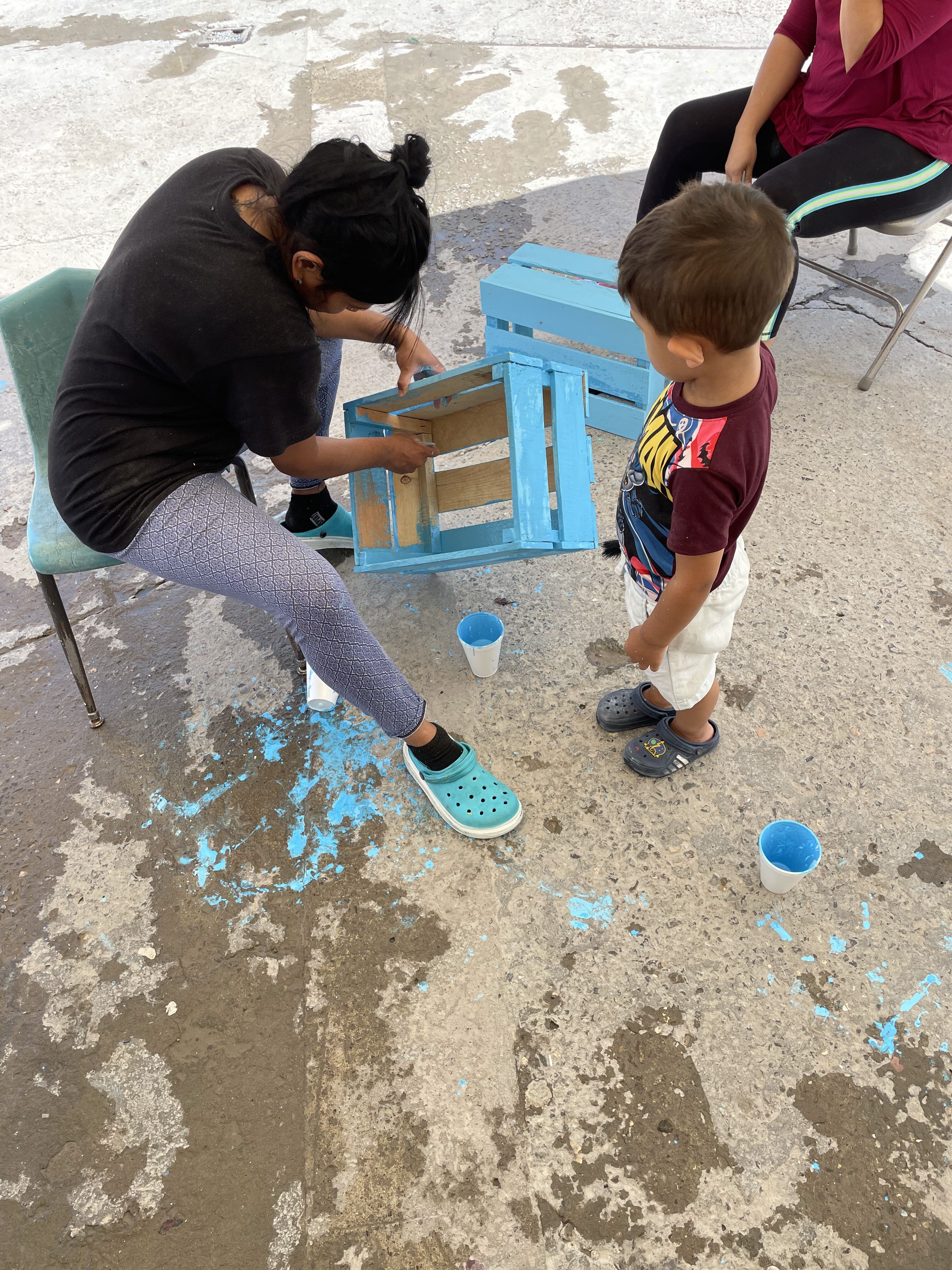
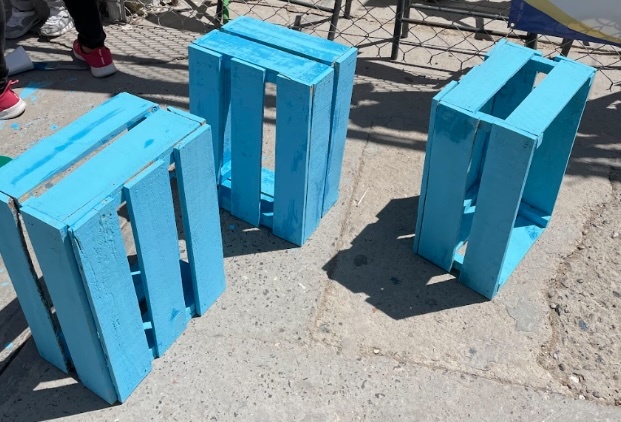
“This box will help me store my clothes and add a little color to the shelter. Also, I love that this will be useful not only for me but also for the future migrants that come here,” one of the participants said. Another participant shared how nostalgic the woodworking workshop was for him because his father had taught him how to sand and paint wood many years ago. Now, the boxes will store dry goods and personal belongings or hold plants. In the future, the boxes will be used as building blocks for future furniture projects, inspiring those in mobility to continue reaching for their goals.
After the workshop, Miguel shared some pictures and videos with his friend who had donated the boxes. That friend wanted to share the photos and videos with his workers to motivate them to let them know that their labor was helping others. In this mysterious way, we are all connected.
In a city often marked by uncertainty and adversity, this woodworking workshop became a haven of solace and a reminder that the human capacity for creativity and connection prevails, even in the most trying times.
We couldn’t do this work without our community of peacebuilders: our donors whose generosity transforms ideas into realities, our partners who share our vision of a more dignified, just, and peaceful world for all, our program officers and partners’ staff on the ground who accomplish the nitty-gritty, day-to-day tasks, and the people we serve who generously trust us with their stories.
*Not his real name

